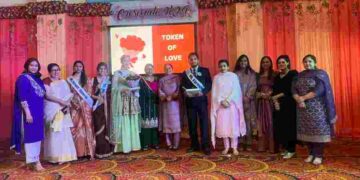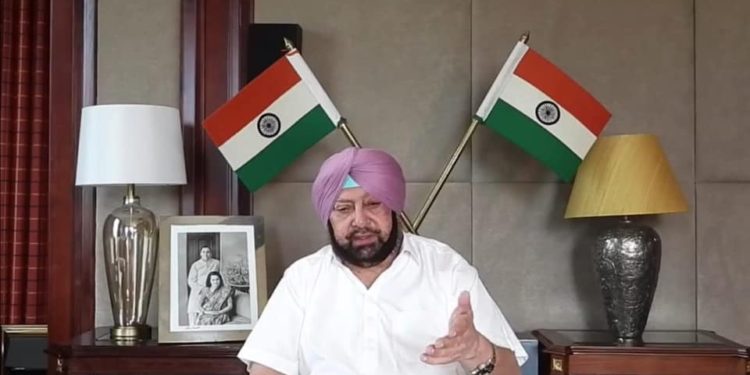Chandigarh, August 20-: Punjab Chief Minister Captain Amarinder Singh has hailed the state’s retention for the third consecutive year of the No. 1 position in the North Zone and improvement of overall national ranking to No. 6 in the Swachh Survekshan -2020.
Terming it the outcome of large-scale citizen participation, he credited the achievement to behaviour change campaign, robust urban infrastructure and trained manpower who worked with utmost dedication.
The state’s national ranking last year was 7 – a major improvement over 2017 when Punjab was among the 10 bottom states. In the Northern Zone (Punjab, Haryana, Himachal Pradesh, Uttrakhand, Uttar Pradesh), it has been at the top for the past three years now. The Chief Minister also complimented Local Government Minister Brahm Mohindra for his department’s successful efforts that led to the rankings.
The Swachh Survekshan-2020 was conducted by Ministry of Housing & Urban Affairs in urban areas of the country, from 4th January 2020 to 31st January, 2020, in 4242 ULBs, the results of which were declared by Prime Minster Narendra Modi on Thursday during a virtual award ceremony. It was conducted to assess Cleanliness i.e. management of solid waste ODF status, including Citizen Feedback and Citizen Involvement.
Punjab Special Chief Secretary, Local Government, Satish Chandra said that from amongst the 10 bottom States in Swachh Survekshan (SS-2017), the ranking of the State improved to 9th in SS-2018, 7th in SS-2019 and 6th in the latest Survekhshan 2020. This year, 4 ULBs, including Municipal Corporation Ludhiana (million plus city) and Municipal Council Nawanshahar, have been awarded. The Municipal Corporation Ludhiana has been awarded for Innovations and best practices. Nawnashahar has scored a hat trick by retaining 1st position in cleanliness in North Zone in terms of its population category.
In comparison to baseline Survekhashan of year 2017, 12 out of 16 Punjab cities with more than 1 lakh population have improved their rankings and, on an average, out of the 434 one lakh plus cities in India, ranking of these 16 bigger cities has improved by 100 places from 2017 to 2020. Not only this, in Zonal ranking for Smaller cities, out of total 1009 Punjab ULBs in 3 different categories, 59 ULBs have figured in Top 100 in their respective categories.
Mission Director Ajoy Sharma said that the innovations made by Punjab in solid waste management had led the Municipal Councils of Nawanshahar, Mansa and Ferozepur to emerge as role models in low cost decentralised model of Solid waste management. The Municipal Councils of Nawanshahr, Mandi Gobindgarh and Municipal Corporation Hoshiarpur had emerged as models of low cost legacy waste remediation.
In the past 3 years, the state has worked relentlessly in management of waste by way of composting of wet waste through low cost aerobic honeycomb pit composting and setting up of Material Recovery Facilities. The State has also formulated its own cultural solution namely ‘Jivaamrit’ for odour-less and speedier composting besides locally manufacturing low cost Mechanical Separator for remediation of legacy waste and also low cost composter.
Chandra revealed that 97% households are covered with Door to Door collection and 77% are covered with source segregation of waste. A total number of 7776 tricycle and 967 GPS enabled motorized vehicles have been pressed into service by ULBs for Door to Door collection of segregated waste. About 6000 of low cost honeycomb compost pits have been completed for aerobic composting, and 192 Material Recovery Facilities have also been constructed. Onsite composting of horticulture has started in 1313 parks, added the Mission Director.
It may be recalled that Punjab recently also bagged No. 1 position in the latest rankings released by the Government of India regarding operations of Health and Wellness Centres (HWCs), while Haryana slipped to 14, HP stood at 9 and Delhi, with its much touted Healthcare model, tottered at rank 29.








